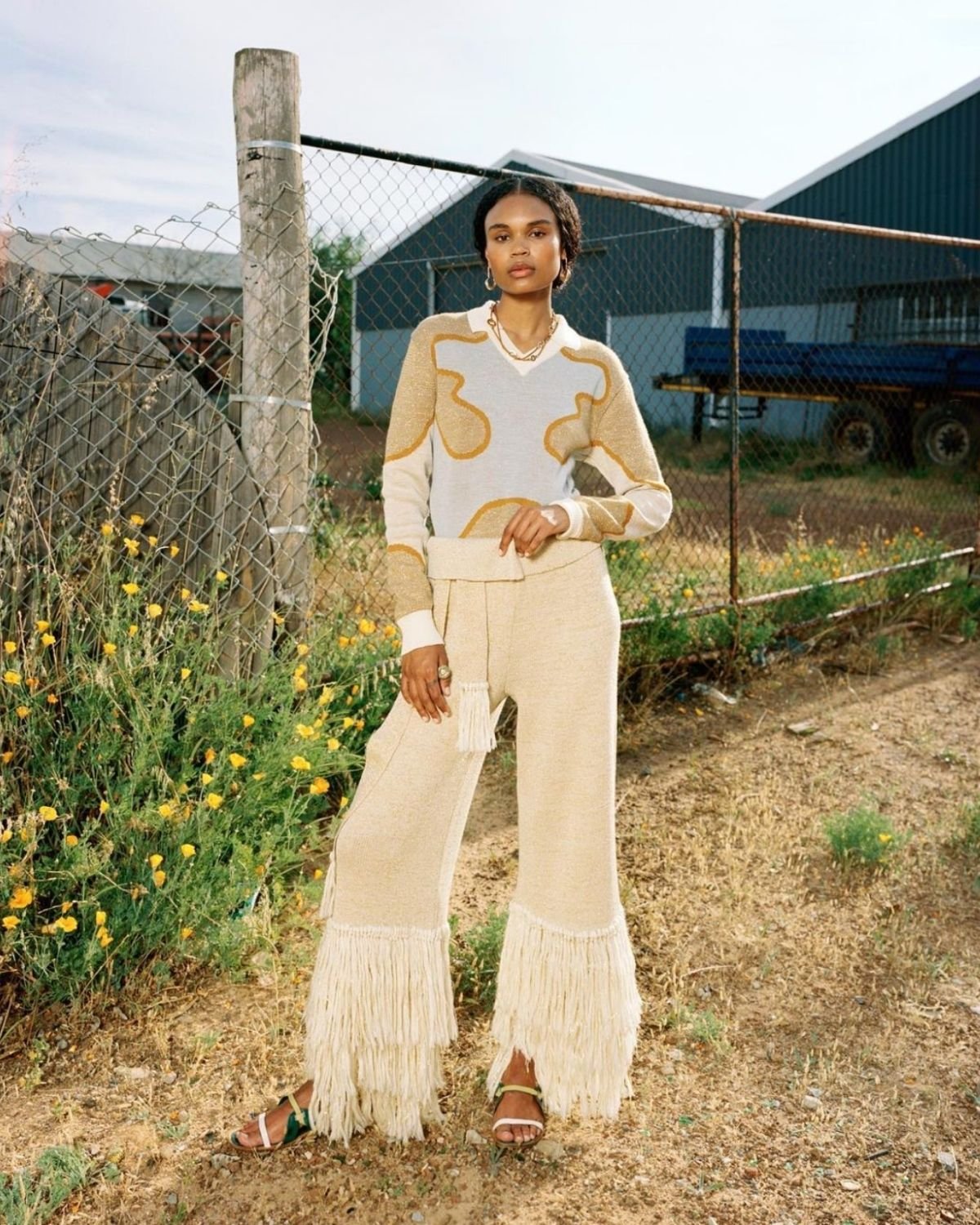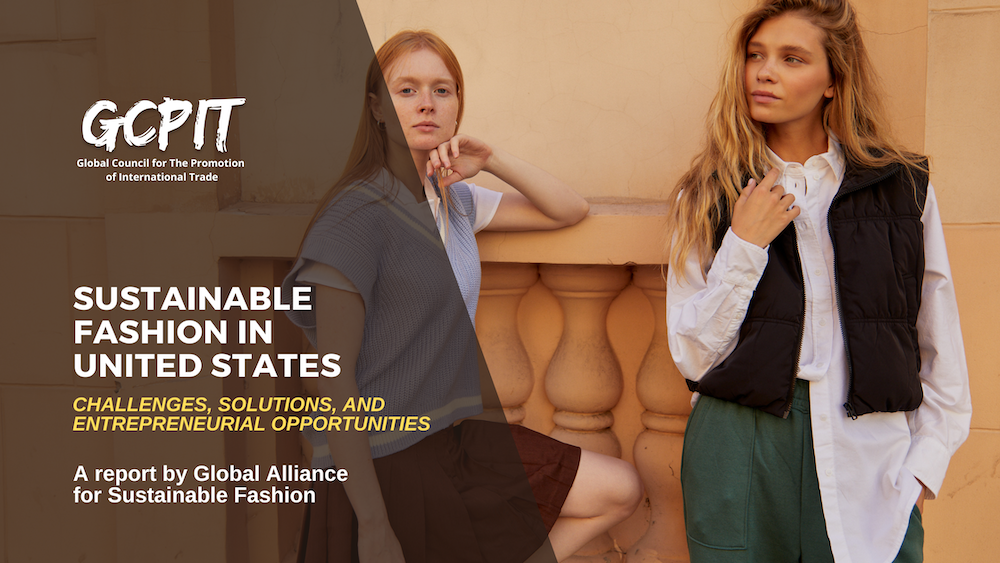Cape Town Sustainable Fashion Designers Leading the Environment-friendly Movement
Cape Town Sustainable Fashion Designers Leading the Environment-friendly Movement
Blog Article
Keep Ahead of the Curve by Exploring Innovative Fashion Trends
In a market as vibrant as fashion, staying in advance includes even more than just complying with present trends-- it demands an expedition of innovation. The convergence of innovation and fashion proclaims a new period of consumer involvement.

Embracing Smart Textiles
In the last few years, the fashion business has actually witnessed a transformative change with the integration of clever textiles, an innovative advancement that mixes innovation with material. This evolution represents not just a fusion of visual appeals and functionality yet also a considerable leap in the direction of sustainability and personalization in vogue. Smart fabrics, likewise recognized as e-textiles, embed advanced electronic devices such as sensing units and conductive threads within the textile, allowing garments to communicate with the setting or the wearer.
These fabrics are made to keep an eye on physiological criteria, such as heart price or body temperature, supplying real-time health analytics. Beyond wellness applications, clever fabrics are also being used for flexible clothing, which can alter color or pattern in reaction to ecological stimuli, therefore supplying a vibrant style experience.
Moreover, the development of energy-harvesting fabrics that create power from movement or sunshine is leading the way for self-sufficient wearable innovation. This development is interesting eco conscious customers and developers aiming to lower the eco-friendly footprint of fashion. As r & d in this area breakthrough, smart fabrics are anticipated to become increasingly prevalent, improving the landscape of modern-day style with their multifunctional abilities.
The Surge of 3D Printing
Transforming the manufacturing landscape, 3D printing has become a game-changer in the fashion industry. This advanced modern technology has enabled developers to push the limits of imagination, generating intricate and personalized garments that were formerly unbelievable. By leveraging electronic design and additive manufacturing, 3D printing helps with the development of complex geometries and patterns, enabling designers to experiment with new structures and structures.
A remarkable advantage of 3D printing in vogue is its capability to create on-demand, decreasing waste and decreasing inventory needs. This efficiency not only enhances manufacturing processes however likewise permits quick prototyping, enabling developers to bring their visions to life in a much shorter duration. Moreover, 3D printing supports personalization to a degree unrivaled by traditional approaches, offering individualized fits and distinct styles tailored to individual customer preferences.
The surge of 3D printing has actually likewise democratized style, making it accessible to emerging developers who can currently produce top quality pieces without considerable monetary investment in conventional manufacturing facilities. As modern technology proceeds to breakthrough, the fashion business is positioned to harness the full capacity of 3D printing, checking out new products and techniques that will undoubtedly redefine how style is developed and produced.
Lasting Fashion Technologies
As the fashion business comes to grips with the pushing demand for ecological obligation, lasting fashion technologies have actually emerged at the center of transformative change. The expanding understanding of environmental impact has actually sustained a change in the direction of more eco-conscious techniques and products. Designers and brand names are now focusing on sustainability, integrating methods that reduce waste and lower carbon footprints.
One significant advancement is the rise of circular fashion, which emphasizes recycling and upcycling to expand the lifecycle of garments. This approach not just decreases waste however likewise urges consumers to take on a much more mindful method to clothes consumption. Furthermore, using lasting products, such as natural cotton, use this link hemp, and recycled polyester, has acquired grip. These products need less water and energy throughout manufacturing, substantially lessening environmental influence.
One more breakthrough depends on the adoption of ingenious dyeing strategies that make use of all-natural dyes or waterless processes, thereby decreasing the large amounts of water and chemicals generally utilized in fabric dyeing. In addition, improvements in biotechnology have caused the development of lab-grown natural leather and fabrics, using ecologically friendly and cruelty-free choices to conventional materials. With these pioneering initiatives, the apparel industry is making meaningful strides towards an extra lasting future.

Tech-Integrated Clothing
Tech-integrated apparel represents an innovative fusion of style and innovation, improving exactly how individuals communicate with their clothes. This innovative domain is marked by the inclusion of clever textiles and ingrained electronic parts, improving both performance and visual charm. From physical fitness trackers installed in sports apparel to warmed coats regulated using mobile phone apps, tech-integrated apparel provides customers unprecedented ease and versatility.
Introducing brands are driving this fad, concentrating on developing garments that react to environmental stimuli or customer commands. For example, some garments can alter color or pattern click site in feedback to temperature level changes, while others integrate biometric sensors to keep an eye on health metrics like heart rate or anxiety degrees. The seamless combination of innovation right into textiles also encompasses ecological sustainability, with efforts to develop self-cleaning fabrics or garments that change to weather, hence lessening the need for several layers.
Additionally, the arrival of wearable innovation is not just limited to garments but includes devices like watches and eyeglasses, further widening the extent of tech-integrated style. As the market remains to introduce, the capacity for personalization and personalization in apparel expands, using customers unique, tech-enhanced fashion experiences that deal with their specific requirements and choices.
Future of Virtual Fashion
In recent times, the future of online style has become a transformative pressure within the industry, leveraging innovations in digital technology to redefine how style is produced, experienced, and taken in. By integrating augmented truth (AR), virtual fact (VIRTUAL REALITY), and 3D style tools, developers can currently craft interactive and immersive experiences that transcend typical style borders. Online fashion enables the creation of garments that exist solely in digital atmospheres, using countless opportunities for development without the limitations of physical manufacturing.
This electronic change not just offers opportunities for creative expression but likewise addresses sustainability worries integral in typical fashion practices. Cape Town Sustainable Fashion. By eliminating the requirement for physical resources, digital style lowers waste and decreases carbon footprints. Furthermore, the surge of online fashion lines up with the boosting consumer demand for distinct and individualized experiences, as online garments can be personalized and tailored to private preferences easily

Conclusion
The garment industry's future depend on the integration of lasting practices and innovative technologies - Cape Town Sustainable Fashion. Smart fabrics and tech-integrated apparel are boosting capability, while 3D printing offers possibilities for modification and waste decrease. Sustainable style, with round strategies and environment-friendly products, shows a commitment to environmental stewardship. Moreover, online style is poised to redefine customer interactions. Adjusting to these patterns is crucial for brands seeking to remain appropriate and competitive in this swiftly advancing landscape.
In recent years, the style industry has actually seen a transformative shift with the combination of smart fabrics, a sophisticated development that mixes innovation with textile.As the style Cape Town Sustainable Fashion market grapples with the pushing demand for environmental obligation, sustainable style innovations have actually arised at the leading edge of transformative adjustment.In recent years, the future of online style has arised as a transformative force within the market, leveraging developments in electronic modern technology to redefine how style is developed, experienced, and taken in. The increase of online style lines up with the increasing customer need for individualized and distinct experiences, as digital garments can be customized and customized to specific choices with simplicity.
The fashion sector's future lies in the combination of cutting-edge modern technologies and lasting practices.
Report this page